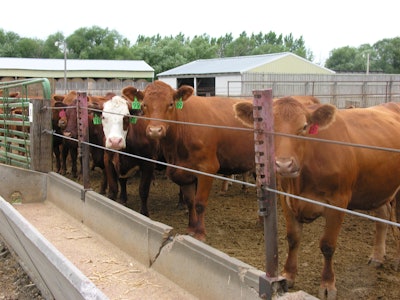
A Washington man pleaded guilty today to defrauding Tyson Foods Inc. (Tyson) and another company (Company 1) out of more than $244 million by charging them under various agreements for the purported costs of purchasing and feeding hundreds of thousands of cattle that did not actually exist.
According to court documents, Cody Allen Easterday, 49, of Mesa, used his company, Easterday Ranches Inc., to enter into a series of agreements with Tyson and Company 1 under which Easterday Ranches agreed to purchase and feed cattle on behalf of Tyson and Company 1. Per the agreements, Tyson and Company 1 would advance Easterday Ranches the costs of buying and raising the cattle. Once the cattle were slaughtered and sold at market price, Easterday Ranches would repay the costs advanced (plus interest and certain other costs), retaining as profit the amount by which the sale price exceeded the sum repaid to Tyson and Company 1.
Beginning in approximately 2016 and continuing through November 2020, Easterday submitted and caused others to submit false and fraudulent invoices and other information to Tyson and Company 1. These false and fraudulent invoices sought and obtained reimbursement from the victim companies for the purported costs of purchasing and growing hundreds of thousands of cattle that neither Easterday nor Easterday Ranches ever purchased, and that did not actually exist. As a result of the scheme, Tyson and Company 1 paid Easterday Ranches over $244 million for the purported costs of purchasing and feeding these ghost cattle.
Easterday used the fraud proceeds for his personal use and benefit, and for the benefit of Easterday Ranches, including to cover approximately $200 million in commodity futures contracts trading losses that Easterday had incurred on behalf of Easterday Ranches. In connection with his commodity futures trading, Easterday also defrauded the CME Group Inc. (CME), which operates the world’s largest financial derivatives exchange. On two separate occasions, Easterday submitted falsified paperwork to the CME that resulted in the CME exempting Easterday Ranches from otherwise-applicable position limits in live cattle futures contracts.
“For years, Cody Easterday perpetrated a fraud scheme on a massive scale, increasing the cost of producing food for American families,” said Acting Assistant Attorney General Nicholas L. McQuaid of the Justice Department’s Criminal Division. “The Criminal Division’s prosecutors are committed to swiftly and thoroughly prosecuting frauds affecting our nation’s agricultural and other commodities markets, whether in the heartland or on Wall Street.”
“I commend the agents with the Federal Deposit Insurance Company Office of the Inspector General and the U.S. Postal Inspection Service for their dedication to investigating this case and tenacity in ferreting out the fraudulent activity to which the defendant has pleaded guilty,” said Acting U.S. Attorney Joseph H. Harrington for the Eastern District of Washington.
“Today’s guilty plea holds the defendant responsible for his extensive and coordinated fraud over many years, resulting in more than $240 million of illicit gains,” said Inspector General Jay N. Lerner of the Federal Deposit Insurance Corporation – Office of Inspector General (FDIC-OIG). “The defendant submitted false and fraudulent documentation, and then brazenly used the proceeds to cover his losses and for his personal benefit. This scheme was unraveled through rigorous and diligent investigative work with our law enforcement partners, and the FDIC-OIG remains committed to helping preserve the integrity of the banking sector.”
“Producing and providing false invoices and information on goods and services never delivered, were the fundamental key in defrauding an American multinational company out of hundreds of millions of dollars,” said Inspector in Charge Delany De León-Colón of the U.S. Postal Inspection Service Criminal Investigations Group. “This case highlights the collaborative investigative work undertaken by the U.S. Postal Inspection Service and its law enforcement partners to protect consumers and businesses from duplicitous practices. Anyone who engages in these fraudulent and deceptive activities will be brought to justice.”
Easterday pleaded guilty to one count of wire fraud and agreed to repay $244,031,132 in restitution. He is scheduled to be sentenced on August 4 and faces a maximum penalty of 20 years in prison. A federal district court judge will determine any sentence after considering the U.S. Sentencing Guidelines and other statutory factors.
The Federal Deposit Insurance Corporation Office of Inspector General and the U.S. Postal Inspection Service are investigating the case.
Acting Principal Assistant Chief Avi Perry and Trial Attorney John “Fritz” Scanlon of the Criminal Division’s Fraud Section and Assistant U.S. Attorney Russell E. Smoot of the Eastern District of Washington are prosecuting the case.
The Fraud Section plays a pivotal role in the Justice Department’s fight against white collar crime around the country and is the national leader in prosecuting fraud and manipulation in the U.S. commodity markets.





















